Homemade Probiotics for Dogs: Boost Your Pet’s Gut Health!

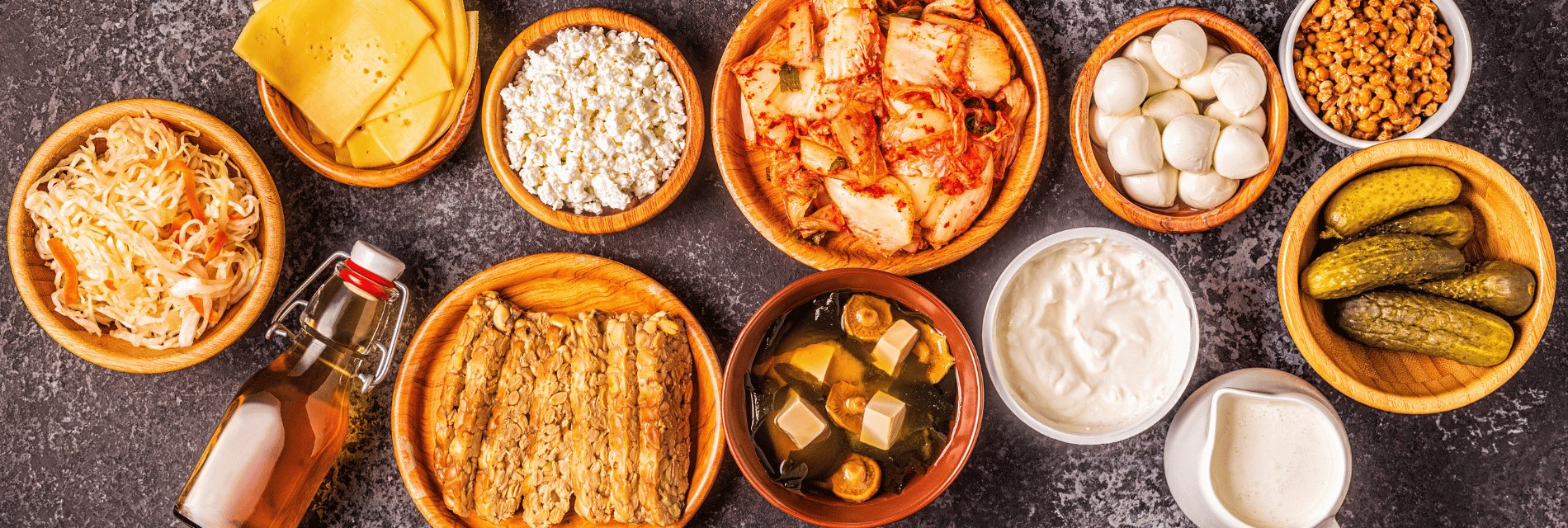
As pet parents, the only thing we want for our furbabies is for them to be happy and healthy. One crucial aspect of our dog’s well-being is their gut health. Just like in humans, a healthy gut plays a vital role in our dog’s overall health and immune system. The gut is home to trillions of bacteria, both good and bad who together form a complex ecosystem called the gut microbiome.
These bacteria play a crucial role in various aspects of our furbaby’s health, and the good ones offer a multitude of benefits for maintaining gut health. A healthy gut helps your dog properly digest their food, absorb nutrients, and eliminate waste.
It also plays a significant role in supporting their immune system. This is because a large portion of the immune system is located in the gut. When your dog’s gut is in optimal condition, it can help prevent digestive disorders, allergies, and even certain chronic diseases.
However, when the balance between good and bad bacteria is disrupted, it can lead to various health issues in your dog. In such situations, probiotics come to the rescue. These are tiny microorganisms that have the potential to support our dog’s gut health in various ways, from aiding digestion to boosting the immune system.
Probiotic supplements for dogs are available in various forms, like capsules, powders, and tablets. But you can also whip up some homemade probiotics for dogs right in your kitchen. In this article, we will explore some DIY probiotic options you can make at home and discuss what to consider before incorporating them into your dog’s diet.
What Are Probiotics and Why Are They Beneficial for Dogs?

Probiotics are live microorganisms that provide health benefits when consumed in adequate amounts. These beneficial bacteria help restore and maintain a healthy balance in your dog’s gut. They can be found naturally in some foods or can be taken as supplements. Probiotics work by colonizing the gut and inhibiting the growth of harmful bacteria.
For dogs, probiotics offer several benefits. They can improve digestion, enhance nutrient absorption, and strengthen the immune system. Probiotics also help alleviate symptoms of gastrointestinal issues such as diarrhea, constipation, and bloating. Additionally, they can reduce the risk of certain infections and allergies in dogs.
Commercial vs. Homemade Probiotics: Which Is Better for Your Furry Friend?
When it comes to probiotics for dogs, you have two options: commercial or homemade. Commercial probiotics are readily available in pet stores and online. They come in various forms, such as powders, capsules, or chews. While commercial probiotics can be convenient, they may contain additives or preservatives that could potentially harm your dog’s health.
On the other hand, homemade probiotics offer a natural and cost-effective alternative. By making probiotics yourself, you have full control over the ingredients, ensuring that your furry friend gets the best quality. Homemade probiotics are also fresher and contain a wider variety of beneficial bacteria. They are easy to make and can be tailored to your dog’s specific needs.
Advantages of Homemade Probiotics for Dogs

Homemade probiotics have several advantages over their commercial counterparts. We have explained these advantages in detail below:
Cost-Effective
Making probiotics at home can be more cost-effective compared to purchasing commercial probiotic supplements. You can use simple, readily available ingredients to create homemade probiotics, which may be more budget-friendly in the long run.
Customization
Homemade probiotics allow you to customize the ingredients and strains used to suit your dog’s specific needs. You can experiment with different probiotic-rich foods to create a blend that works best for your dog’s digestive health.
Natural and Fresh Ingredients
Homemade probiotics typically involve using natural and fresh ingredients, such as fermented vegetables or homemade yogurt. This can be appealing for dog owners who prefer a more natural approach to their pet’s health.
Nutritional Value
Certain homemade probiotic foods, like fermented vegetables, can provide additional nutritional benefits beyond probiotics. Fermentation can enhance the bioavailability of nutrients, making them more easily absorbed by the body.
Provides Variety
Homemade probiotics offer the opportunity to introduce a variety of probiotic strains to your dog’s diet. Different fermented foods contain different strains of beneficial bacteria, and rotating between them can provide a diverse range of probiotic benefits.
Disadvantages of Homemade Probiotics for Dogs
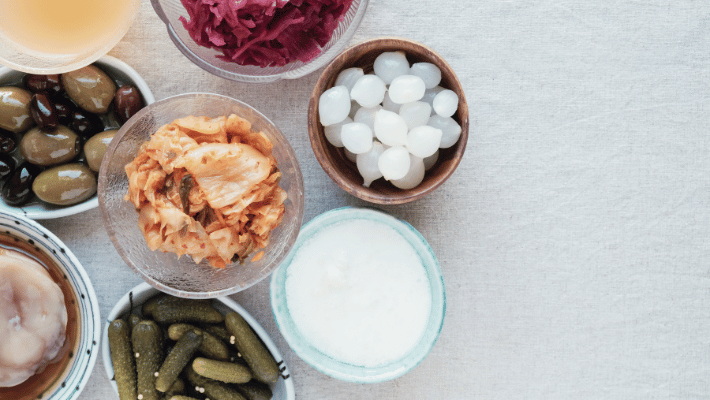
However, it’s essential to note that there are a few considerations and potential drawbacks when it comes to homemade probiotics for dogs:
Consistency and Quality Control
Ensuring consistent quality and potency of homemade probiotics can be challenging. The levels of live bacteria can vary depending on the fermentation process and environmental factors. It may require experimentation and careful monitoring to achieve consistent results.
Contamination Risks
Homemade probiotics involve fermentation processes that can be susceptible to contamination by harmful bacteria or yeasts if not done correctly. It is crucial to follow proper food safety practices, maintain cleanliness, and monitor for any signs of spoilage.
Lack of Scientific Evidence
While fermented foods have been consumed by humans for centuries and are generally considered safe, there is limited scientific research specifically on the benefits and appropriate dosages of homemade probiotics for dogs. Commercial probiotic supplements, on the other hand, often undergo rigorous testing and have more established research supporting their efficacy.
Individual Sensitivities
Dogs can have individual sensitivities or allergies to certain homemade probiotic ingredients. It’s important to introduce new foods gradually and monitor your dog’s response to ensure they tolerate the homemade probiotics well.
Before incorporating homemade probiotics into your dog’s diet, it is advisable to consult with a veterinarian. They can provide guidance, assess your dog’s specific health needs, and offer recommendations on homemade probiotics that may be appropriate for your pet.
How to Make Homemade Probiotics for Dogs
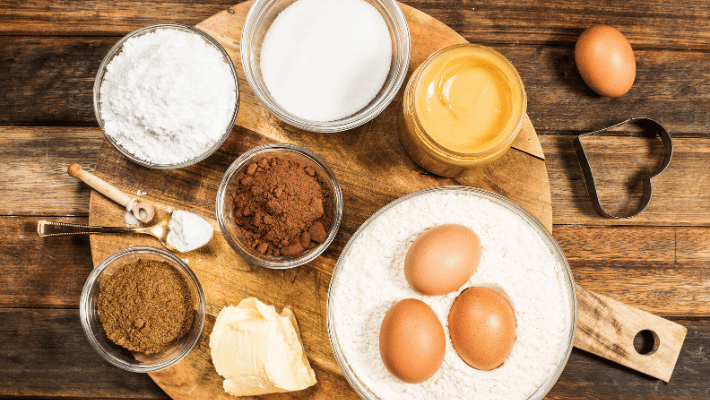
Now that you understand the benefits of homemade probiotics let’s dive into how you can make them for your furry friend. Making homemade probiotics for dogs is a simple and straightforward process. Here are some recipes for homemade probiotics for dogs:
Ingredients and Supplies Needed For Dog-Friendly Kimchi
- Organic vegetables (such as carrots, broccoli, or spinach)
- Organic fruits (such as apples or blueberries)
- Plain unsweetened yogurt or kefir (ensure it contains live active cultures)
- Filtered water
- Glass jars with lids
- Blender or food processor
- Cheesecloth or fine mesh strainer
- Rubber bands
Step-by-Step Guide To Make Kimchi at Home for Dogs
Step 1: Start by thoroughly washing the vegetables and fruits to remove any dirt or pesticides. Chop them into small pieces for easier blending.
Step 2: In a blender or food processor, combine the organic vegetables and fruits. Add a small amount of water to help with blending.
Step 3: Blend the mixture until it reaches a smooth consistency. You may need to add more water if it becomes too thick.
Step 4: Transfer the blended mixture into a glass jar, leaving some space at the top. This allows room for fermentation.
Step 5: Add a tablespoon of plain unsweetened yogurt or kefir into the jar. The live active cultures in the yogurt or kefir will act as the starter for fermentation.
Step 6: Stir the mixture gently to distribute the yogurt or kefir evenly.
Step 7: Cover the jar with a cheesecloth or fine mesh strainer, securing it with a rubber band. This allows air to circulate while keeping out any insects or contaminants.
Step 8: Place the jar in a warm and dark area, like a cupboard or pantry, for 24-48 hours. During this time, the mixture will ferment and develop beneficial bacteria.
Step 9: After the fermentation period, remove the cheesecloth or strainer and replace it with a lid. Store the jar in the refrigerator to slow down the fermentation process.
Your homemade probiotics for dogs are now ready to be served! Start by giving your furry friend a small amount and observe how they respond. Gradually increase the dosage as needed.
Probiotic Yogurt Treats
Ingredients required:
- 2 cups plain, unsweetened yogurt (preferably with live and active cultures)
- 1 ripe banana, mashed
- 1 tablespoon honey (optional)
Here are the step-by-step Instructions:
- In a bowl, combine the yogurt, mashed banana, and honey (if using) until well-mixed.
- Spoon the mixture into ice cube trays or silicone molds.
- Freeze until firm.
- Serve as a refreshing treat. The yogurt provides probiotics while the banana adds natural sweetness.
Kefir Frozen Berry Bites
Ingredients needed:
- 1 cup plain kefir (unsweetened)
- 1 cup mixed berries (such as blueberries, strawberries, or raspberries)
- 1 tablespoon honey (optional)
Instructions for preparing this dish:
- In a blender or food processor, blend the kefir, mixed berries, and honey (if using) until smooth.
- Pour the mixture into silicone molds or ice cube trays.
- Place the molds or trays in the freezer and let them set for a few hours or until firm.
- Once frozen, remove the treats from the molds and transfer them to a freezer-safe container or bag.
- Serve the kefir frozen berry bites as a refreshing and probiotic-rich treat to your dog.
However, before giving any of these homemade probiotics to your dog, it’s essential to start with a small dosage and gradually increase it. Every dog is unique, and their tolerance and response to probiotics may vary. Begin by giving your dog a teaspoon of homemade probiotics mixed with their regular food. Observe any changes in their digestion or overall well-being.
If your dog responds well, you can gradually increase the dosage to one tablespoon per day. However, if you notice any adverse effects, such as diarrhea or vomiting, reduce the dosage or discontinue use. It’s always best to consult with your veterinarian before introducing any new supplements to your dog’s diet.
Things To Remember Before Giving Homemade Probiotics To Your Dogs
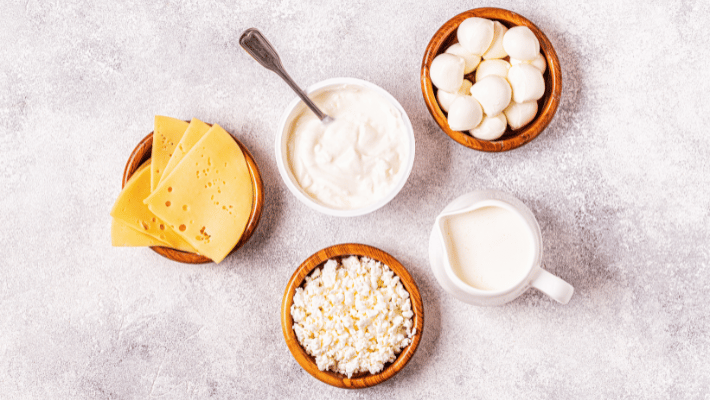
While homemade probiotics for dogs are generally safe, there are a few precautions to keep in mind. Firstly, avoid using ingredients that are toxic to dogs, such as onions, garlic, or grapes. These can be harmful to their health. Stick to dog-friendly fruits and vegetables.
Additionally, if your dog has a compromised immune system or a history of gastrointestinal issues, it’s crucial to consult with your veterinarian before introducing homemade probiotics. They can provide guidance specific to your dog’s health condition and advise on the appropriate dosage.
Lastly, keep an eye out for any potential side effects. While rare, some dogs may experience temporary digestive upset when first introducing probiotics. This can manifest as mild diarrhea or gas. If these symptoms persist or worsen, discontinue use and consult your veterinarian.
Some Other Ways To Promote Gut Health in Dogs
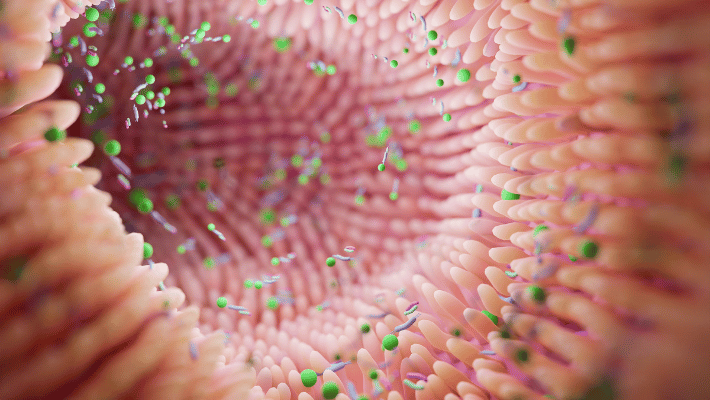
Aside from homemade probiotics, there are other natural remedies you can incorporate into your dog’s routine to promote gut health. Here are a few suggestions:
- Fiber-rich foods: Adding fiber to your dog’s diet can aid digestion and regulate bowel movements. Consider adding sources of fiber such as pumpkin or sweet potatoes to their meals.
- Bone broth: This food item is rich in nutrients and collagen, which can support gut health. You can make homemade bone broth by simmering bones (such as chicken or beef) in water for several hours.
- Herbal supplements: Certain herbs, such as slippery elm or marshmallow root, can soothe the digestive system and reduce inflammation. Consult with a holistic veterinarian for guidance on using herbal supplements.
- Stress reduction: Stress can negatively impact your dog’s gut health. Provide a calm and peaceful environment for your furry friend, and engage them in regular exercise and mental stimulation.
Final Thoughts on Improving Your Dog’s Gut Health with Homemade Probiotics
A healthy gut is essential for your dog’s overall well-being. By incorporating homemade probiotics into their diet, you can support their digestion, strengthen their immune system, and prevent various health issues.
With a few simple ingredients and a little effort, you can whip up a batch of homemade probiotics that are safe, effective, and tailored to your dog’s specific needs. Remember to start with a small dosage and monitor your dog’s response.
If you have any concerns, consult with your veterinarian for personalized advice. Here’s to a healthy gut and a happy, thriving furry friend!
Read Also:









Leave A Comment